Whaling awareness survey reveals that Japanese are turning away from whale meat
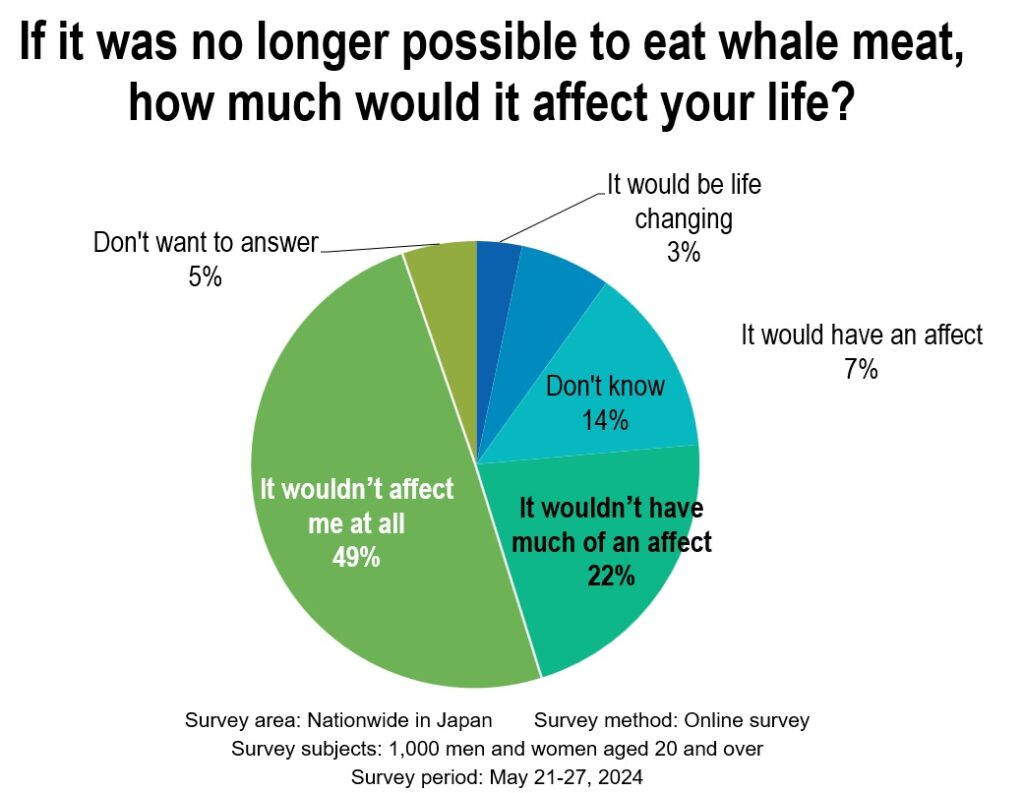
On August 14, the international NGO Whale and Dolphin Conservation (WDC) released the results of a survey on awareness of whaling in Japan. For this survey, JWCS was in charge of commissioning a survey with a Japanese market research company on behalf of WDC. The online survey was conducted by a market research company with 1,000 people who are registered as respondents, and answered a questionnaire online. Respondents were split equally across gender and age groups, and the number of respondents was determined based on the population distribution of each regional block.
All generations clearly turning away from whale meat
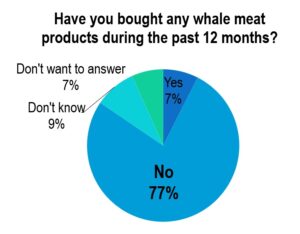
When asked about whether they had purchased whale meat in the past year, 77% answered that they had not. Many people across all generations said that it would not affect them if they could no longer eat whale meat.
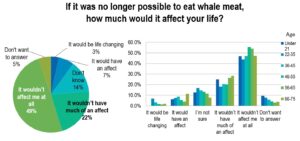
Only a minority of people would be opposed if the government banned whaling
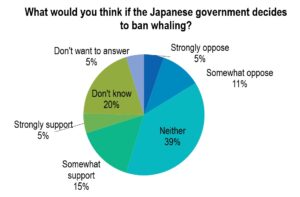
If Japan were to ban whaling, the percentage of people who supported the decision (anti-whaling) slightly exceeded the percentage of people who opposed it (continued whaling). Many of the respondents answered “neither” or “don’t know,” so it is thought that only a small percentage of people would be opposed to the Japanese government’s decision to ban whaling.
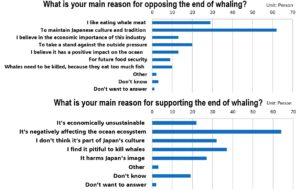
We asked people who answered “against” or “supported” why they did so.
Among those who answered “I am against the ban on whaling,” more people said they were against it in order to “preserve Japanese culture and traditions” than those who “like whale meat.” Among those who answered “I support the ban on whaling,” the majority saw whaling as an issue for the marine ecosystem. Some people saw whaling from diplomatic or economic perspectives, and a variety of reasons were given in addition to animal welfare.
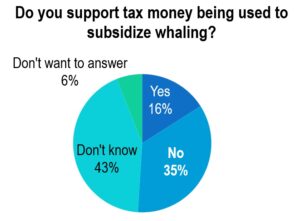
Regarding the pros and cons of using tax money to subsidize the whaling industry, the number of people who did not support it exceeded the number of people who supported it.
Support for wildlife conservation
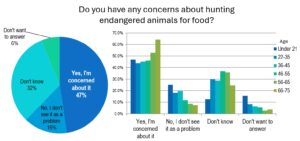
Many people said that endangered species should not be eaten. Half of the respondents were against eating endangered species, with this awareness being particularly high among older generations.
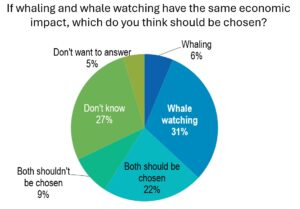
Whale watching was also supported.
Concerns about harmful substances in food
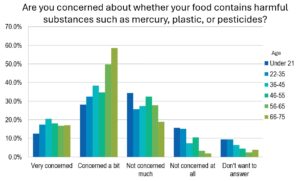
Older people tend to be more concerned about harmful substances in food.
Whale and Dolphin Conservation (WDC) analyzed minke whale meat in Norway in 2023 and found that high levels of PFOS were detected in all samples*. The average level found in the eight samples would cause a 70kg person consuming 100 grams of minke whale meat to surpass the total weekly intake (TWI) of PFOS set by the European Food Safety Authority (EFSA) from that meal alone. Meanwhile, other studies detected even higher PFOS levels, suggesting it might take even less than 100 grams of whale meat a week to surpass the TWI.
If it becomes clear that imported whale meat contains harmful substances, it is likely that people will increasingly move away from whale meat in the future.
*Norway Whale Meat Contaminant Report
Recent contaminant analyses indicate potential for health risks to humans from consumption of Norwegian whale meat(2024)
[Survey on awareness of whale meat and whaling]
Survey area: Nationwide in Japan
Survey method: Online survey
Survey subjects: 1,000 men and women aged 20 and over
Survey period: May 21-27, 2024
Market research company: Webteams LLC
